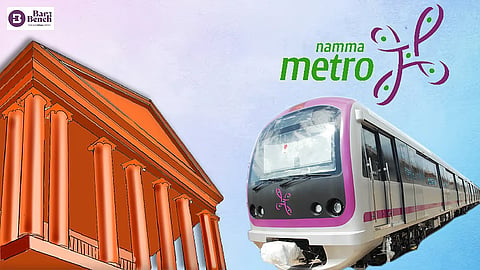
- Latest Legal News
- News
- Dealstreet
- Viewpoint
- Columns
- Interviews
- Law School
- Legal Jobs
- हिंदी
- ಕನ್ನಡ

The Karnataka High Court recently held that the State government has no authority to regulate the service conditions of employees of the Bengaluru Metro Rail Corporation Limited (BMRCL), ruling that the Central government alone is the “appropriate government” under the Industrial Disputes Act, 1947. [Bengaluru Metro Rail Corporation Limited v. Government of Karnataka]